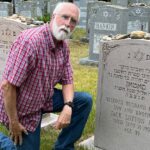Joy in Place of Fear
Zephaniah 3:9–20
Zephaniah lived and proclaimed God’s word when times were changing. Zephaniah proclaimed God’s coming judgment because His people had adopted pagan practices and turned back from following Him (Zeph. 1:4–6). We also live in the context of changing, fearful days. In difficult days, Zephaniah spoke a message of hope to faithful believers. The name of the prophet in Hebrew means “Yahweh [God] has hidden.” His great-grandfather Hezekiah served as king of Judah, a good king who tried to bring religious reform. Zephaniah was the only prophet with royal blood, and God charged him to preach a message of His judgment upon His own people.
God will remove fear from those who humble themselves before Him. (9–13)
God is a judge. The message of Zephaniah 3:1–8 is God’s judgment of His people’s spiritual life. They disobeyed, did not accept discipline, failed to trust Him and neglected to draw near to Him in worship. Leaders failed to lead. Princes and judges devoured the people. Prophets were reckless and treacherous. God’s people were no different from other nations and kingdoms; therefore, God’s people experienced His judgment of purification.
God is gracious. After judgment, He promised grace. God is a judge, but He is also a Savior. He promised to restore pure speech so people groups could call on His name and serve Him with a single purpose. Zephaniah, in essence, describes a reversal of the confusion of tongues at Babel. He described the worship of people groups of the world. People from diverse geographical areas such as Cush (a nation south of Egypt) would worship the one true God.
God is a transformer. He will transform His people into a holy community. He is a refuge for His people in a sin-sick world. God will not allow arrogant, haughty people to worship on His holy mountain. Rather, He allows meek, humble people to take refuge in Him. The mouth and tongue give evidence of God’s mighty act of transformation. He specifically condemns the sins of the tongue in His redeemed people, namely lying and speaking deceitfully. God is a shepherd. His people will lie down in contentment because nothing will make His people afraid.
God’s presence delivers His people through all harm. (14–17)
Zephaniah wrote during a time when God’s people were dispersed throughout Babylon. Yet He challenged them to a threefold biblical worship: Be joyful! Be loud! Be glad and celebrate! The presence of the King among God’s people results in the lack of fear. God is a warrior who is mighty to save. This passage describes Him as a Warrior, a Lover and a Singer.
We will experience eternal restoration in God’s kingdom. (18–20)
The Book of Zephaniah closes with three promises: First, God’s scattered people will be gathered and restored. Second, God will reverse the condition of His unfortunate people. The lame, the outcasts and the disgraced will receive praise and honor. Third, God guarantees His promises with the words “The Lord has spoken.”
By Mark Rathel
Professor at the Baptist College of Florida in Graceville, Florida










